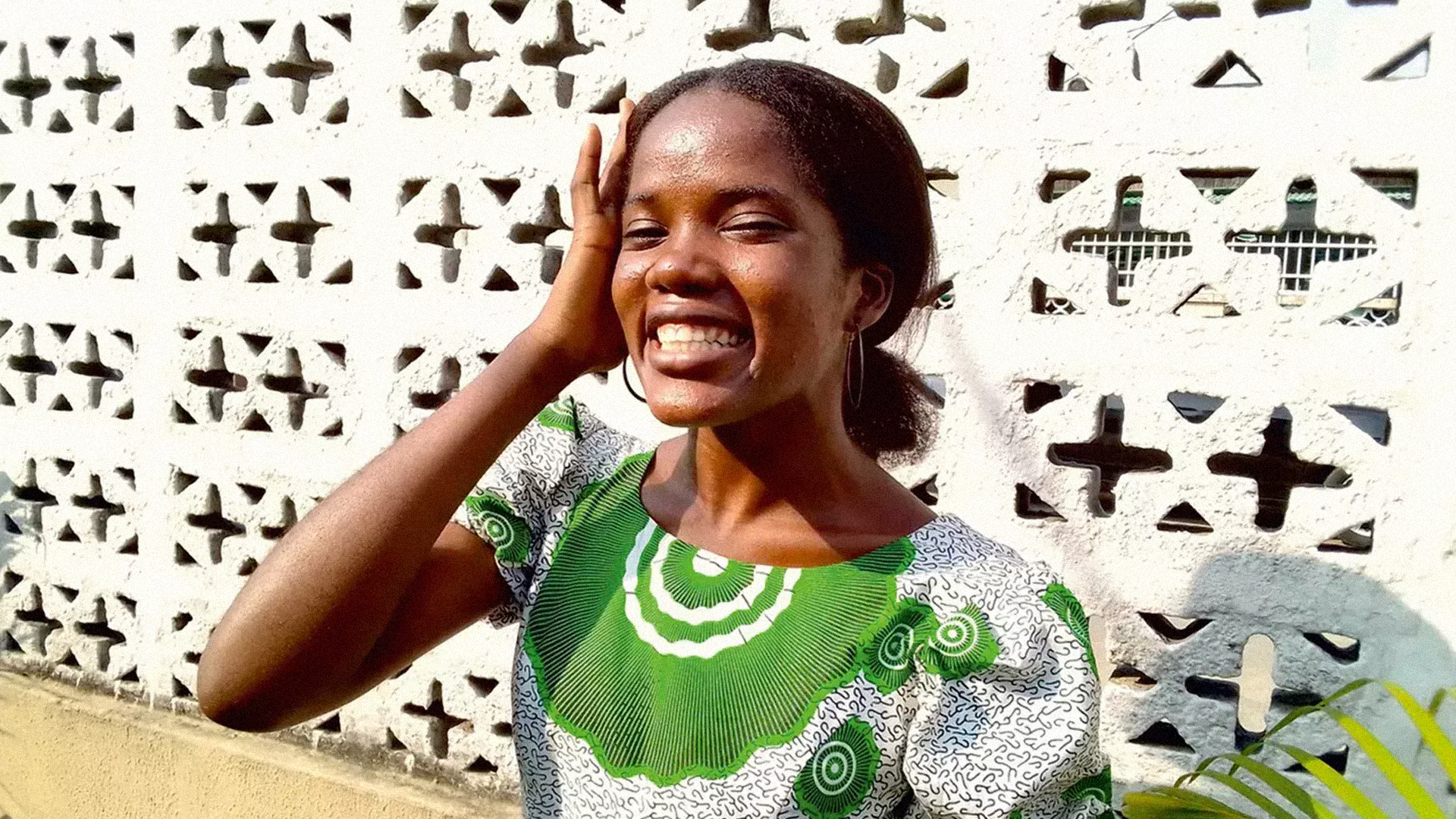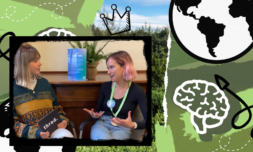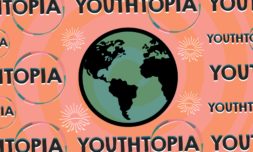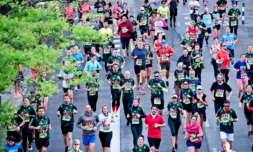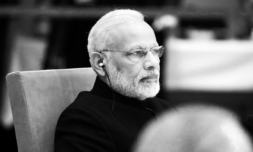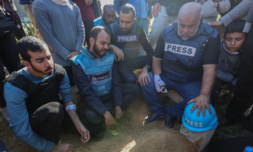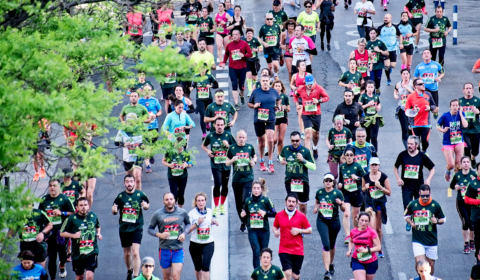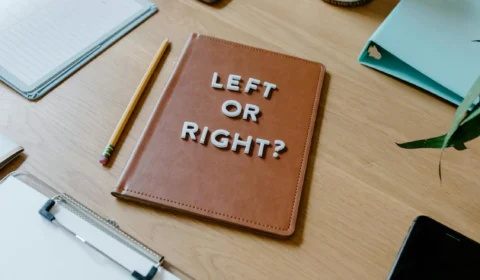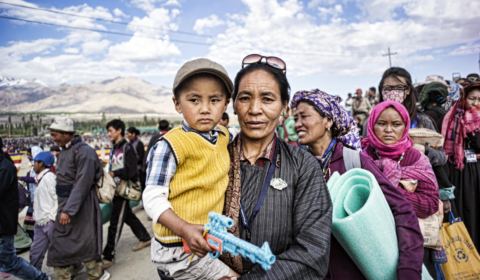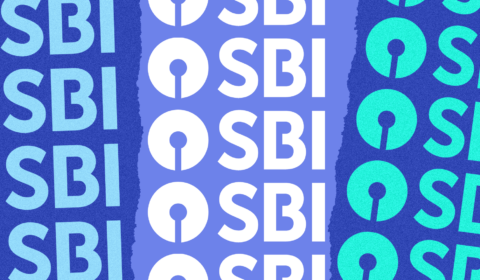Thred: Time and time again, high-income countries have failed to commit to their climate finance pledges. Do you think that these promises will ever be met with real action and how can we ensure that they do?
Oluwaseyi: It’s been sad to see how slow the process of getting action from our leaders is.
Action has been so broken. There have been so many promises, words, commitments, and fancy speeches over the years. The fact that we’ve had over twenty seven climate conferences, some even before I – or most of Gen Z – were born, means this has been ongoing and it’s still happening.
What about the future? Will our children also have to go through COP meetings to solve the same problem?
I’ll start with a story of my experience of COP26 last year. One of the things I found at the end was that, sadly, climate summits alone can’t solve this problem.
[COP meetings] are a great way for us to come together to pressure our governments and presidents into becoming more ambitious about climate solutions, but we can’t rely on COP alone to get them to do what they need to.
We have to understand that lives are at stake. Between now and last year, so much has happened. Here in Nigeria, we had and are currently having a very destructive flood in 33 out of 36 states in the country.
I don’t mean a flood that submerges your foot or stops at chest height. There are three-story buildings disappearing due to flooding. Inside every floor there is floodwater. It’s really, really concerning. Farm produce is impacted, because farms have been washed out. All of these floods cause food insecurity. They cause environmental injustice.
So I think the answer to the question is: COP meetings are a great way to bring everyone into the same room to talk. But the UN has to explore more innovative strategies that pressure governments to take action in real time.
People are saying that this year’s COP is about implementation. So what structures are we putting in place to ensure that governments and presidents will report their progress throughout the year and before the next meeting? Time is not on our hands.
Thred: On the note of encouraging the UN to seek more solutions alongside government funding and private investment, do you have any ideas about what alternative action needs to be taken to bring about change and by who?
Oluwaseyi: I like to see climate change issues and environmental issues from a mindset perspective.
I always say we have to prioritise the needs of nature because, ultimately, these are our needs too. Once we prioritise the needs of nature, we wouldn’t need to urge people to do things they ought to do.
Imagine if it was normal for every single organisation to be committed to funding or supporting environmental initiatives. Imagine it being as normal as having to pay salaries to employees.
Imagine if we had a structure that encouraged people to give funding– not because they want to look good in the media – but because they understand what the needs of the environment are and see how their funding can help make things better.
It’s been sad to witness a lot of greenwashing taking place. This is because, over time, what has dominated our mindset as humans is profit. But when we look very closely, we understand that it isn’t sustainable.
Of course we need profit. But if we continually prioritise profit over nature, over our planet, over our people – we are ultimately losing in the end. Especially because there are some things that cannot be quantified in the form of money.
If we lose our ecosystems, it will take years to get them back. And some of these things cannot be brought back. They’ll be gone forever. We can’t get animals back from extinction or people back when they lose their lives to climate disasters. This already affects so many of us.
I wish I could have all the heads of major corporate bodies in a room to show them the very gruesome impacts of the climate crisis. We are all humans and we all have feelings. I would show them the real stories, the hardships people are facing because of [a profit-first mentality].
If they saw these real stories, perhaps that would influence their decisions because, as you know, knowledge influences decisions. Stories influence our lives in a very large way.
To change our lives, we have to change our mindset. If we could change the mindset of people [in major corporations], they would commit to the environment from a place of authenticity and, for me, an intrinsic place that replaces profit and gain. They would be more committed to taking the action that our world desperately needs.
Thred: How can young people be holding companies accountable for not only contributing to the crisis, but for hindering progress as well as with their own action?
Oluwaseyi: I think action starts from knowledge.
I used to think that Coca-Cola’s recycling projects were good. And in small ways, they are. But when you compare the gravity of their good to the gravity of the harm they’re causing, it’s like a drop in the ocean. We need them to provide real solutions, no longer false solutions.
Large companies like Coca-Cola can have a far more authentic and strategic way to solve the problem [of plastic pollution]. They could go back to the drawing board and stop plastic from being pumped into the environment at the ridiculous level it is right now. Yet they have chosen not to.
My knowledge of corporate greenwashing came as a result of spending time on my project. Learning more about it, reading reports, reading news articles, and all of that. It came over time. So at the root of all of these issues is the need for primary education. More people need to be more informed about the problem.
We need it to be taught in our school curriculum. We can’t continue to be fooled. From education comes inspiration, action, and innovation. You innovate, start demanding more solutions, and see outcomes.
I always like to refer to Greta Thunberg’s story, because it all started when she learned about the environment in school. She went back home, did some research, and became inspired. Greta has now led a massive moment of millions of people across the world. Imagine we had more Gretas in Africa, in Asia, in different parts of the world, taking more action and being more involved.
So the lesson from this story is that we need more climate education and awareness. We need to build solutions and begin to call out companies that are deviating from the course of action. Education can help us.
Thred: How can young people get access to more funding aid? How could the system be improved and how can young people position themselves to access more support?
Oluwaseyi: I think it should start from a mindset of trying to see how we can create value as a person.
My journey with trying to get finance for my work was very rough. I would say liberation came when I started to think out of the box, outside of my country, to think outwardly. For example, looking at the normal way things are done and thinking: how can we explore other innovative approaches to doing things? I now understand that capacity building is so intrinsic to helping. If you want to raise funds as a young person, you have to show that you are competent, that you know what you are doing.
You have to have show: ‘okay, I’ve done X, Y, Z with one hundred people. If I get more funding, I can do it for 1,000 people. Or I can do it for 10 million people.’
You also have to understand the importance of knowledge. I was able to access more funding by sharing my personal story and what I have seen.
I was sixteen when I had one of my first experiences with fundraising. We had to sell tickets to raise money for a school event and we had to ask for donations. So when I started my NGO, I received a mini-grant of about a hundred dollars – which was very little for an NGO – but I thought of ways I could create a proof of concept that I could then use to get more funding to expand the work I really want to do.
I relied on family donations, crowdfunding, and all of this helped me to – with the help of my co-founder and my team members – create projects on a small scale. We went beyond our means, putting as much effort as we could into ensuring that we could build something that’s tangible, authentic, and impactful. We were then able to then launch a series of little events across different parts of Lagos in Nigeria, which let in other opportunities.
Opportunities are always around, but we have to be on the lookout for them. We have to position ourselves to access them.
Let me talk about opportunities now. I got the National Geographic opportunity and that helped me to access more funding for my work. I got to know Nat Geo by being part of a network. So we went from building capacity, which is the first one, to prioritising knowledge.
Now, the third important thing I would say is accessing networks. You can’t do this kind of work alone as a young person. How can you find the network that you need in your field? How can you find a mentor that can help to put you in the right places, as well as advise you, support you, and recommend you? Networks have been so essential to the work I do. Most of the jobs I work on now, I didn’t get them online. I got them through a network.
As young people, we have to look for networks, because people are looking to connect with you. If you have value to offer, they will acknowledge that.
They’re actually looking for you to help you, too. They want to assist you, but you have to prove that you know what you are doing, and that you are ready. If you’re not ready, you can simply show that you know the basics and you want to grow.
That’s another thing – you have to have the mindset of growth. Do not be tied to the idea of, ‘oh, I know everything,’ but rather have a desire to learn more about how you can expand your work. So, we first have building capacity, then gaining knowledge, accessing networks, prioritising a growth mindset, and applying for opportunities as much as you can.
Don’t be derailed by rejection. Rejections are just – I don’t know how many rejections I’ve gotten over the last five years. There have been so many episodes of rejection, but that didn’t stop me and I’m so glad it didn’t.
Imagine if I had given up because everybody wasn’t saying ‘yes’ to my goals or ‘yes’ to my dreams. I wouldn’t be where I am today.
Sometimes rejections are good because they spark redirection. I remember getting a rejection from a particular opportunity. I had to go back and ask: what am I doing wrong? You have to reflect on your work to ensure that it meets the checklist. Try to meet a global standard of strategy that allows you to enter important spaces and gives you access to open doors.
Try to be diligent in your business. Try to see how you can always go the extra mile, how you can add your special spice to the work you’re doing, not just doing what everybody else is doing. You understand why you need to show up each day, why you need to solve this problem, and communicate that through storytelling.
Keeping a good record of your work online also helps. For instance, a lot of these opportunities you apply for, they won’t know you from anywhere. People have to go online to find you, understand your work, and who you are. So, have a good record of this on your social media platform – LinkedIn, Instagram, your website – wherever it may be, and keep applying for opportunities.
One opportunity can literally change your life.
In summary: build capacity, gain knowledge, access networks, present assets, apply for opportunities, and position yourself well.
Thred: On a final note, young people already interested in climate action will be watching COP27 closely over the next two weeks, albeit with a bit of scepticism. How can we go about keeping momentum going post-COP and how should we be including new young people in the climate conversation between the annual events?
Oluwaseyi: I’m very excited that they introduced the Youth Pavilion at COP. It shows that our screams, our voices, our passion are pushing change. It makes me so excited to see that this was the result of the hard work of so many young people across the world.
It makes me to think, imagine if [the youth] didn’t show up. Imagine they were like, ‘Oh, climate change is so overwhelming. I’m not going to make any effort for that.’ But thank God for those people that actually tried to show up, at least to the best of their ability.
And why did they show up? Most of these people understand. They have seen, they have experienced climate change. They have lived it. That is why they keep doing the work they’re doing.
Even though you may not experience climate change as a pressing subject, one thing is certain: in your area, one place is hotter than it used to be or it rains more than it used to previously. So climate change is affecting us all, one way or another.
So how can we preserve momentum? Action. Action always has results, and after showing up daily, you can see what the results have come to. Your actions count and others’ actions also count.
Why choose inaction when you have the beautiful opportunity to be part of creating this unique future that your children, your grandchildren, would get to experience? You can be part of this and you don’t have to feel pressured. Just by contributing in your own small way, you can make a huge difference.
We need everybody’s voice in this movement. You don’t have to be the loudest. Even the smallest squeal is something. It contributes to the greater good of everything.
It’s so important to learn more about the climate crisis. It can be as simple as watching a documentary or following an environmental activist online. For instance, I have on my [social media] feed many people that have expert knowledge in fashion, climate change, intersectional climate activism, and women’s rights. They’re always using social media as a tool.
Something as simple as ensuring that you follow people who can give you information [about the climate crisis] will help you become better positioned to contribute to the movement.
Play a video, listen to podcasts, sign up to newsletters. There are a large number of resources that have been set up for young people to get access to information, knowledge, opportunities, and even jobs in this space. Getting access to this kind of content can be super helpful to anyone that wants to get started. You can also explore volunteering as well or talk to your family and friends.
In summary, trying to keep momentum is an important type of action. Action always produces results. Good actions have good results, bad actions and inaction have negative results.
Even if you don’t see the results yet, continue to be optimistic and reflect on the positive stories. As much as there’s terrible news online about climate change and COP27, there’s also really good news. Try to search for inspiring pieces of news that can help you stay grounded in this whole movement. And don’t feel like world is going to come to an end, because eco-anxiety is really terrible.
After COP last year, a number of us had that experience personally. We had eco-anxiety on a very massive scale. It could be infuriating at some points because these are the people that have the power to make commitments to change things, but they are just choosing not to act as much as we want them to. In that moment it’s easy to feel hopeless, but I understand the power we have as individuals.
We have so much power beyond what we can even think of. If we actually put our mind to something and continually work towards it, if we dream big and be consistent, we will create change.
There’s a saying ‘if there’s a will, there is a way’. It starts with us being willing. Be willing to be a part of the movement, to contribute to the positive side of the movement, and so much can evolve from that.









